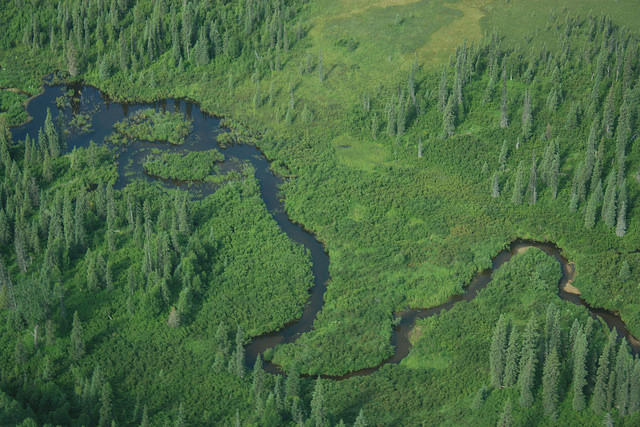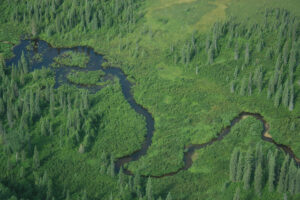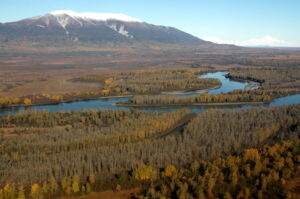
Mixed Victory for Salmon on the Chuitna River
For the first time since statehood, the Alaska Department of Natural Resources (DNR) has granted an instream flow reservation to private citizens. Trustees for Alaska filed the application for water on behalf of our client the Chuitna Citizens Coalition.
On October 7, 2015, DNR granted Chuitna Citizens Coalition one of its three requested water rights on Middle Creek, an important tributary of the Chuitna River. Middle Creek is important salmon spawning and rearing habitat, and has been under threat ever since the State issued coal leases over 40 years ago.
Trustees asked for the water reservations under a state law that allows private citizens to hold water reservations to protect fish and wildlife habitat. The need for instream water reservations here in Alaska has become clear: the proposed Chuitna coal strip mine is only one of many large-scale mining projects proposed across the State that seeks to destroy entire salmon streams.
PacRim Coal has also applied for the same water. But rather than keep enough water in the stream to protect salmon, PacRim plans to completely dewater the streams, and mine the coal 300 feet beneath them. This is a terrible idea ecologically, and economically. Despite the coal being leased in the 1980s, no company has put forward a viable mine plan. And over the last four years, the international coal markets have collapsed.
Despite the lack of any evidence that such a mine can succeed, PacRim continues to seek permits to completely destroy 14 miles of Middle Creek and remove all the surrounding surface and ground water. PacRim’s mining plan also includes building coal export infrastructure in the critical habitat of Cook Inlet beluga whales. All of this destruction for an open pit strip mine for coal that no one wants to buy.
The granting of Chuitna Citizens Coalition’s water right sets a great precedent for others in Alaska seeking water reservations for important salmon habitat. Allowing all water to be appropriated for resource development destroys salmon habitat and diversity. Others seeking to protect rivers by obtaining instream flow reservations include the Alaska Department of Fish and Game, which has a pending application for water rights downstream of this one; federal agencies like the U.S. Fish and Wildlife Service seeking to protect important waters in National Wildlife Refuges; and tribal governments like Chickaloon Village Traditional Council, who has applied for a water reservation in Moose Creek. The Village Council has spent more than a decade restoring fish access and now seeks a water right to protect Moose Creek into the future.

Aerial photo of Middle Creek, a tributary of the Chuitna River where PacRim hopes to remove all the water to extract coal. Photo courtesy of Alaskans First.
Securing the single reservation took the group more than six years and tens of thousands of dollars in research and expert fees. Alaska needs a better water policy to make sure Alaskans have a voice in how our water is managed. The process to keep some water in streams, lakes and rivers that support salmon should be easier. Lengthy administrative processes and scientific proof about water quantity should not be required until someone applies to remove water from a system. With over 13,000 comments in support of this reservation, Alaskans clearly support efforts to keep enough water in our rivers to protect salmon.
And DNR did not grant everything Chuitna Citizens Coalition requested. The decision denied two of the three requested water rights, both of which fell within the footprint of the potential mine. Bowing to political pressure from PacRim and the mining industry support groups, DNR’s denial leaves the future of this watershed uncertain. In denying the reservation request, DNR assumed that PacRim’s coal mine would move forward and that it would be in the public interest to allow PacRim to dewater and excavate Middle Creek.
For more background on Trustees for Alaska’s battle to protect the Chuitna River from coal mining, look here.



